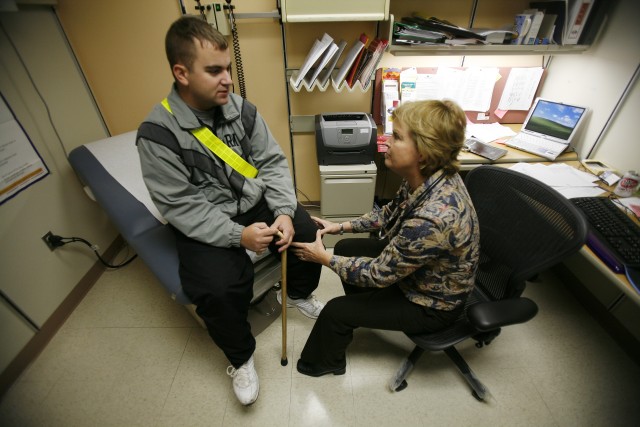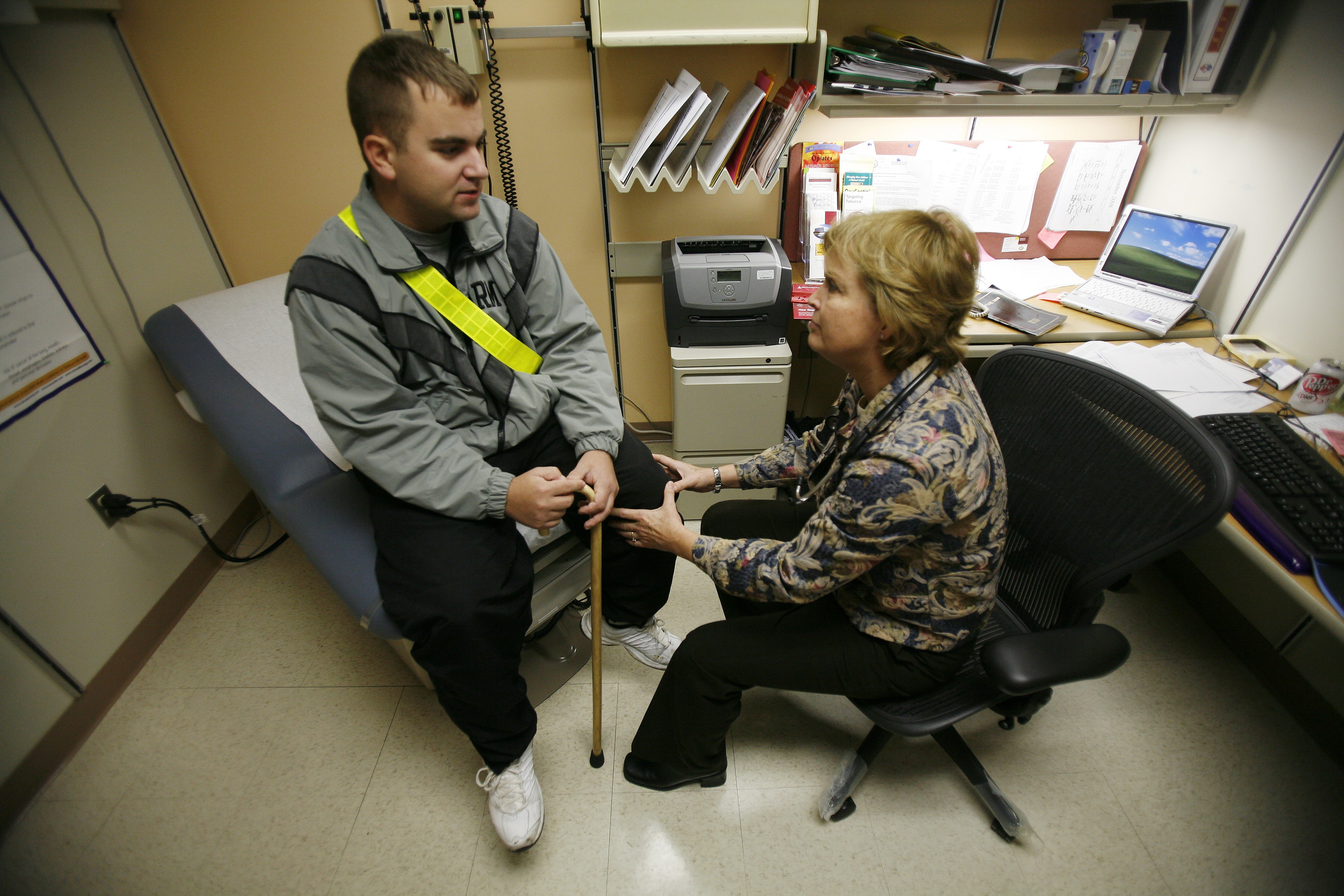FORT LEWIS, Wash. - Sure, the work can be hard and stressful, but then there are those little victories that make it all worthwhile.
As she took a moment from her duties as a licensed practical nurse at the Warrior Transition Clinic at Fort Lewis' Madigan Army Medical Center on Monday, Steffanie Morris remembered one of those. It involved a Soldier in severe pain who had made his first visit to the WTC in a wheelchair.
"He's actually back in Iraq right now, as we speak," Morris said. "He's walking. He's out of pain. It's great to see that. They want to recuperate and go back to work."
Morris and Nancy Poffenberger, the physician's assistant with whom she works, are among the 14 medical professionals at the Fort Lewis WTC doing their best to help Soldiers reach that point.
"We started as a small (Operation Iraqi Freedom) clinic, originally," Poffenberger recalled. "It was only one doc. That was a part of Family Medicine, and all of a sudden, this grew."
Now the clinic attends to the needs of more than 600 Soldiers in the Fort Lewis Warrior Transition Battalion. Every WTB Soldier comes to the clinic within 72 hours of his or her arrival at Fort Lewis.
"We're a busy little clinic, but I love working here," Morris said. "I wouldn't trade it for the world."
Poffenberger and Morris, each of whom has worked at the WTC less than two years, function as a team. After Morris takes their vital signs, she sends patients on to Poffenberger for further evaluation.
"I can play around with patients," Morris said. "I joke around with my patients and make them feel comfortable."
Poffenberger then spends a fair amount of time with the Soldiers.
"Our initial appointments are an hour long," Poffenberger said. "In that hour, besides their medical history and their surgical (history) and hospitalizations and medications, I also get a pretty thorough military history, any kind of exposure to blast injuries or vehicle injuries or anything like that."
The clinic professionals attend to much more than Soldiers' physical ailments, however.
"I think it's very important to recognize Soldiers who maybe did not identify themselves with PTSD when you start asking questions," Poffenberger said. "There's kind of a honeymoon period when they first get home, because they're excited to be home, they're excited to see family and friends. And sometimes these symptoms don't show for three to six months.
"That's one of our goals ... is finding out what's going on in the life of a Soldier and how he's functioning besides the medical care. It's very important that we look at the whole Soldier and not just the knee injury, especially for the Soldiers who have been deployed."
Ironically, Spc. Ryan Martin was in the clinic Monday with a torn meniscus in his right knee, suffered in Iraq. Martin, who eventually will have surgery, has been pleased with the care he has received at the WTC.
"The doctors here, along with the case managers, are working hard," Martin said. "The doctors here are excellent."
As Poffenberger noted, a complete return to health involves more than the individual Soldier.
"We invite families," Poffenberger said. "We like to have whoever the caregiver is ... be here. I think that's one of the focuses that we're going to try to expand."
At the WTC, care providers work with case managers and WTB platoon sergeants to ensure that Soldiers receive what's best for them.
"All three of us work together," Poffenberger said. "It's a team effort here. I think that's important to stress to the Soldiers that they're in the center and we're the team around them."
Bob Reinert is a reporter with


Social Sharing